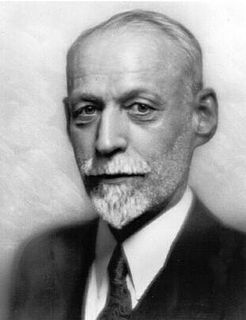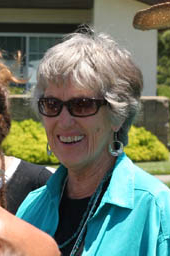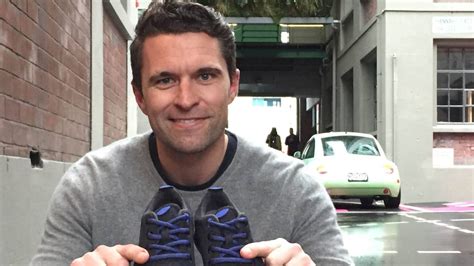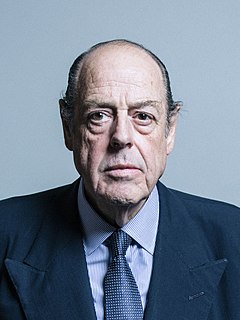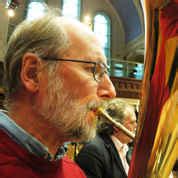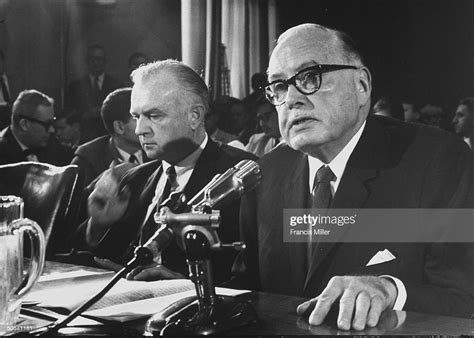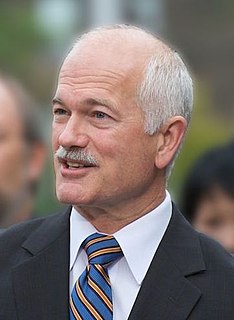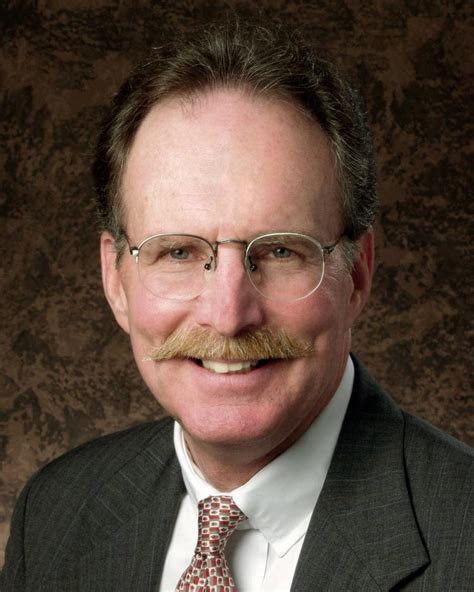Top 1200 Our World Quotes & Sayings
Explore popular Our World quotes.
Last updated on April 17, 2025.
[M]any people would accept that we do not really have knowledge of the world; we have knowledge only of our representations of the world. Yet we seem condemned by our consitution to treat these representations as if they were the world, for our everyday experience feels as if it were of a given and immediate world.
Our environment, the world in which we live and work, is a mirror of our attitude and expectations. If we feel that our environment could stand some improvement, we can bring about that change for the better by improving our attitude. The world plays no favorites. It's impersonal. It doesn't care who succeeds and who fails. Nor does it care if we change. Our attitude toward life doesn't affect the world and the people in it nearly as much as it affects us.
We are thankful for these and all the good things of life. We recognize that they are a part of our common heritage and come to us through the efforts of our brothers and sisters the world over. What we desire for ourselves, we wish for all. To this end, may we take our share in the world's work and the world's struggles.
Self-absorption in all its forms kills empathy, let alone compassion. When we focus on ourselves, our world contracts as our problems and preoccupations loom large. But when we focus on others, our world expands. Our own problems drift to the periphery of the mind and so seem smaller, and we increase our capacity for connection - or compassionate action.
We but mirror the world. All the tendencies present in the outer world are to be found in the world of our body. If we could change ourselves, the tendencies in the world would also change. As a man changes his own nature, so does the attitude of the world change towards him. This is the divine mystery supreme. A wonderful thing it is and the source of our happiness. We need not wait to see what others do.
We all have secret lives. The life of excretion; the world of inappropriate sexual fantasies; our real hopes, our terror of death; our experience of shame; the world of pain; and our dreams. No one else knows these lives. Consciousness is solitary. Each person lives in that bubble universe that rests under the skull, alone.
We can choose to function at a lower level of awareness and simply exist, caring for our possessions, eating, drinking, sleeping and managing in the world as pawns of the elements, or we can soar to new and higher levels of awareness allowing ourselves to transcend our environment and literally create a world of our own - a world of real magic.
Our world does not exist from its own side--like a dream world, it is a mere appearance to our mind. In dreams we can see and touch our dream world, but when we wake up we realize that it is simply a projection of our mind and had no existence outside our mind. In the same way, the world we see when we are awake is simply a projection of our mind and has no existence outside our mind.
Why should we be willing to go by faith? We do all things in this world by faith in the word of others. By faith only we know our position in the world, our circumstances, our rights and privileges, our fortunes, our parents, our brothers and sisters, our age, our mortality. Why should Religion be an exception?
What we would like to do is change the world - make it a little simpler for people to feed, clothe, and shelter themselves as God intended for them to do....We can, to a certain extent, change the world; we can work for the oasis, the little cell of joy and peace in a harried world. We can throw our pebble in the pond and be confident that its ever widening circle will reach around the world. We repeat, there is nothing that we can do but love, and, dear God, please enlarge our hearts to love each other, to love our neighbor, to love our enemy as well as our friend.
Our deepest calling is not to grow in our knowledge of God. It is to make disciples. Our knowledge will grow -- the Holy Spirit, Jesus promised, will guide us into all truth. But that's not our calling, it is His. Our calling is to prepare the world for Christ's return. The world is not ready yet. And so, we go about introducing a dying world to the Savior of Life. Anything we do toward our own growth must be toward that end.
I believe that we face incredible obstacles in our attempts to see the world. Everything in our nature tries to deny the world around us; to refabricate it in our own image; to reinvent it for our own benefit. And so, it becomes something of a challenge, a task, to recover (or at least attempt to recover) the real world despite all the impediments to that end.
This is another lie. We are only seeking Man. We have no need of other worlds. A single world, our own, suffices us; but we can't accept it for what it is. We are searching for an ideal image of our own world: we go in quest of a planet, a civilization superior to our own but developed on the basis of a prototype of our primeval past.
And finally, to all Canadians: Canada is a great country, one of the hopes of the world. We can be a better one – a country of greater equality, justice, and opportunity. We can build a prosperous economy and a society that shares its benefits more fairly. We can look after our seniors. We can offer better futures for our children. We can do our part to save the world's environment. We can restore our good name in the world.
Hospitality means we take people into the space that is our lives and our minds and our hearts and our work and our efforts. Hospitality is the way we come out of ourselves. It is the first step towards dismantling the barriers of the world. Hospitality is the way we turn a prejudiced world around, one heart at a time.
The world is part of our own self and we are a part of its suffering wholeness. Until we go to the root of our image of separateness, there can be no healing ... Only when our feet learn once again how to walk in a sacred manner, and our hearts hear the real music of creation, can we bring the world back into balance.
Most of all, we must never be deceived. We must never allow ourselves to think that anything in this world succeeds, fails, is given, taken, done, or undone without Allah. It is only by our connection to our Creator that we rise or fall in life, in our relationship with our world—and with all of humanity.
The wonderful thing about the theater is that it can emphasize BOTH our diversity AND our common humanity. In many ways, the world of Shakespeare (or Aeschylus or Racine) is totally different from our world; and yet any human being can look through the differences in dress and mores and discover our common problems, passions, and potentials.
Yes I can list all sorts of organizational forms and cultural issues that can get in the way of our accessing our inner creativity and bringing it out in our world. And we can use all kinds of approaches that can transform the organization. But unless we have developed a sense of our Self (who we are at core, at our highest) and our Work (the purpose of our existence, the gift that we have to give to the world) and use that to deal with the inner obstacle, we can't sustain creativity in the face of the chaos of the world.
A new world is not made simply by trying to forget the old. A new world is made with a new spirit, with new values. Our world may have begun that way, but today it is caricature. Our world is a world of things. What we dread most, in the face of the impending debacle, is that we shall be obliged to give up our gewgaws, our gadgets, all the little comforts that have made us so uncomfortable. We are not peaceful souls; we are smug, timid, queasy and quaky.
Some might say that looking inside of ourselves for spiritual truths is egocentric and selfish, and that egolessness and selflessness lie in working for others in the world. But until we find our inner truth, our work in the world will always revolve around our 'selves'. As long as we think about the world in terms of 'self' and 'others', our actions will be selfish. Our 'self' follows us wherever we go, so positive results will be limited.
Most people would say they live with an internal angst that they can't always put their finger on. This is because the Internet has changed our very way of being in this world, compelling us to be perpetually "on" - from our cars to our computers, our tablets to our smartphones, our desks to our living rooms or dining tables, our churches to our libraries to our schools.
The systems of stereotypes may be the core of our personal tradition, the defenses of our position in society. They are an ordered more or less consistent picture of the world, to which our habits, our tastes, our capacities, our comforts and our hopes have adjusted themselves. They may not be a complete picture of the world, but they are a picture of a possible world to which we are adapted. In that world, people and things have their well-known places, and do certain expected things. We feel at home there. We fit in. We are members.
Phonogram was explicitly about our world. It’s a fantasy which is happening around us all, unnoticed except for those who’ve fallen into its world. In a real way, it’s real. Conversely, W+D is much more overt. The appearance of the gods changes the world, and has changed the world going back. There’s the strong implication that certain figures in our world simply didn’t exist in The Wicked And The Divine‘s world, because they were replaced by a god.
Through the Holy Spirit comes our restoration to paradise, our ascension into the kingdom of heaven, our return to the adoption of sons, our liberty to call God our Father, our being made partakers of the grace of Christ, our being called children of light, our sharing in eternal glory, and, in a word, our being brought into a state of all "fulness of blessing," both in this world and in the world to come, of all the good gifts that are in store for us, by promise hereof, through faith, beholding the reflection of their grace as though they were already present, we await the full enjoyment.







